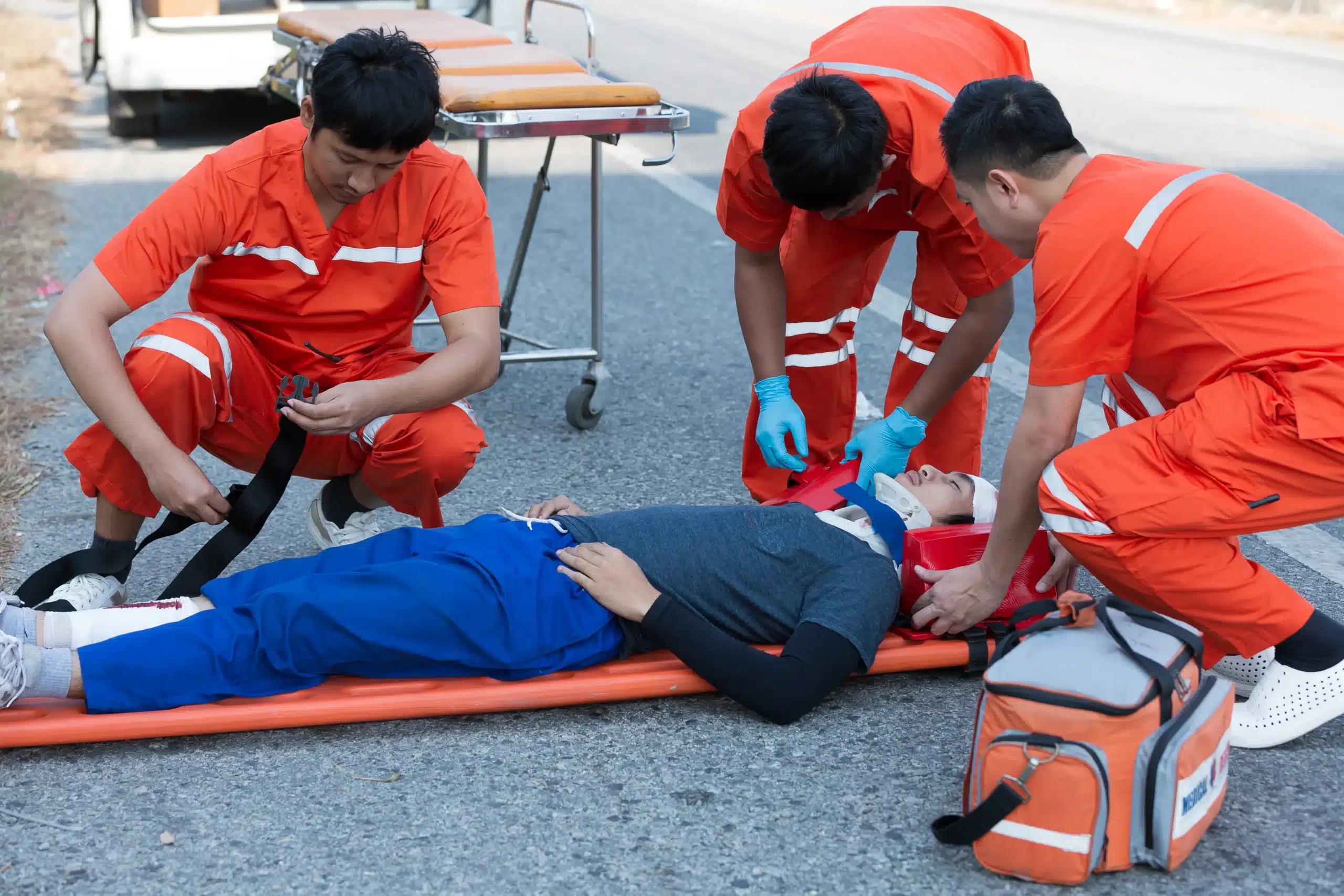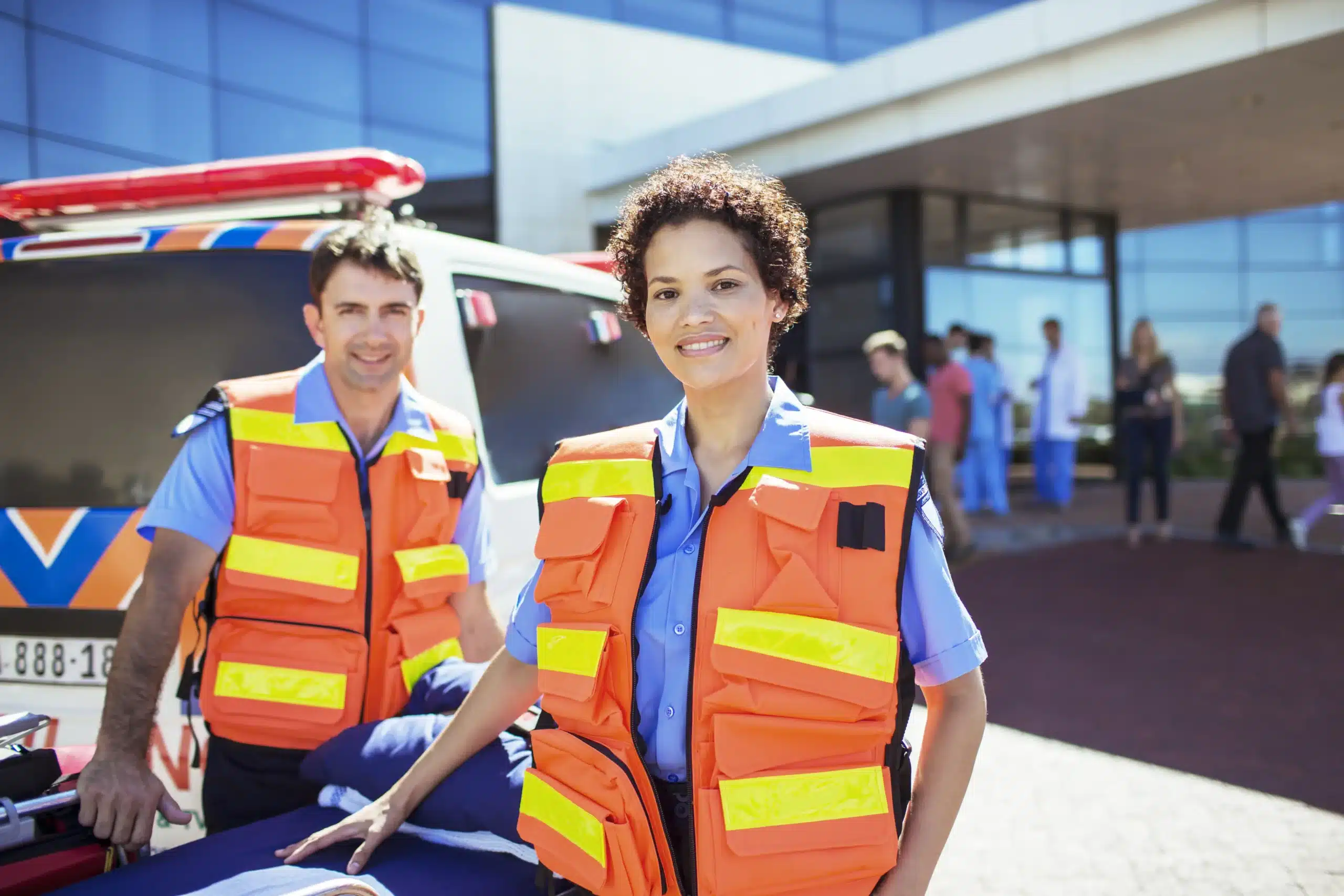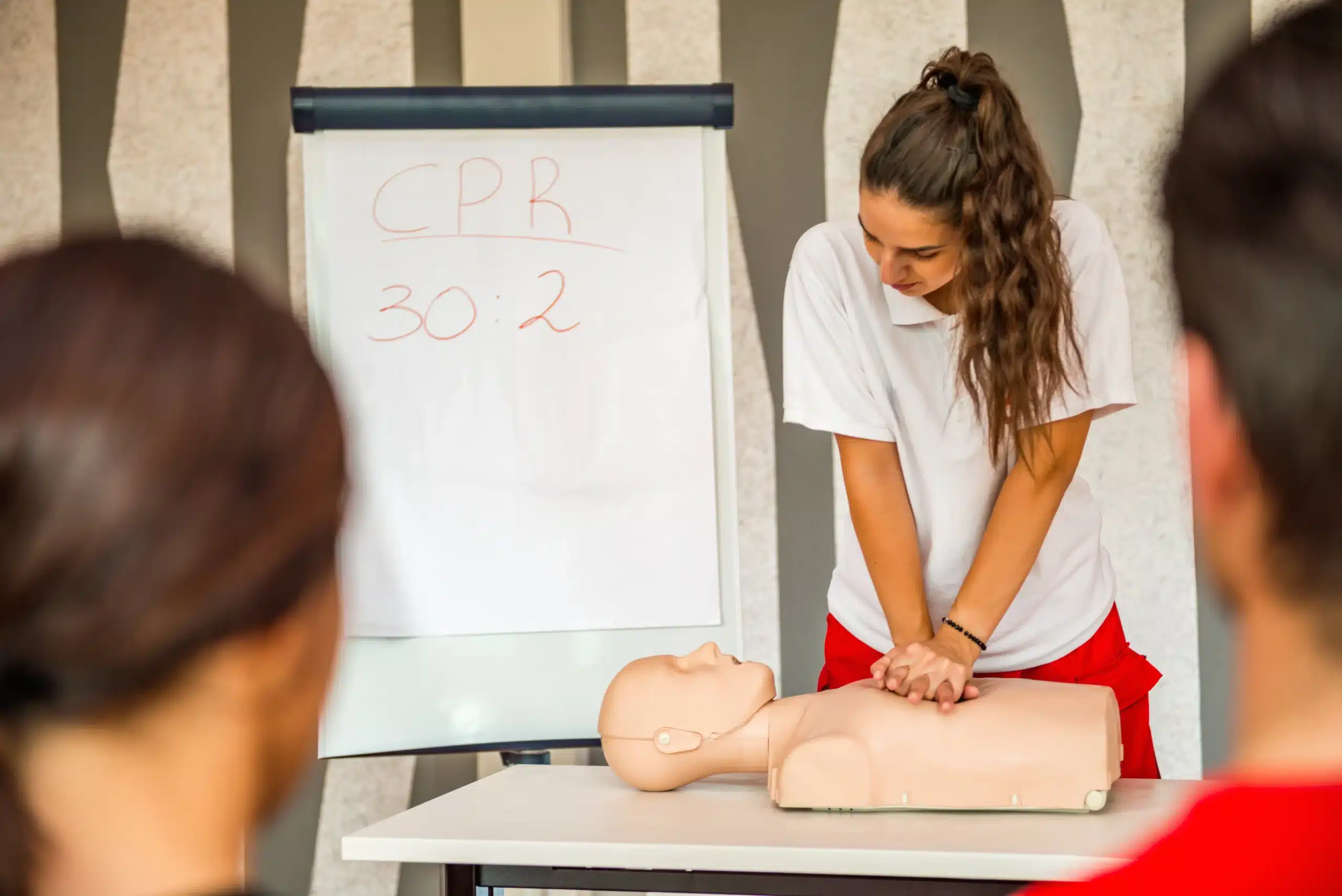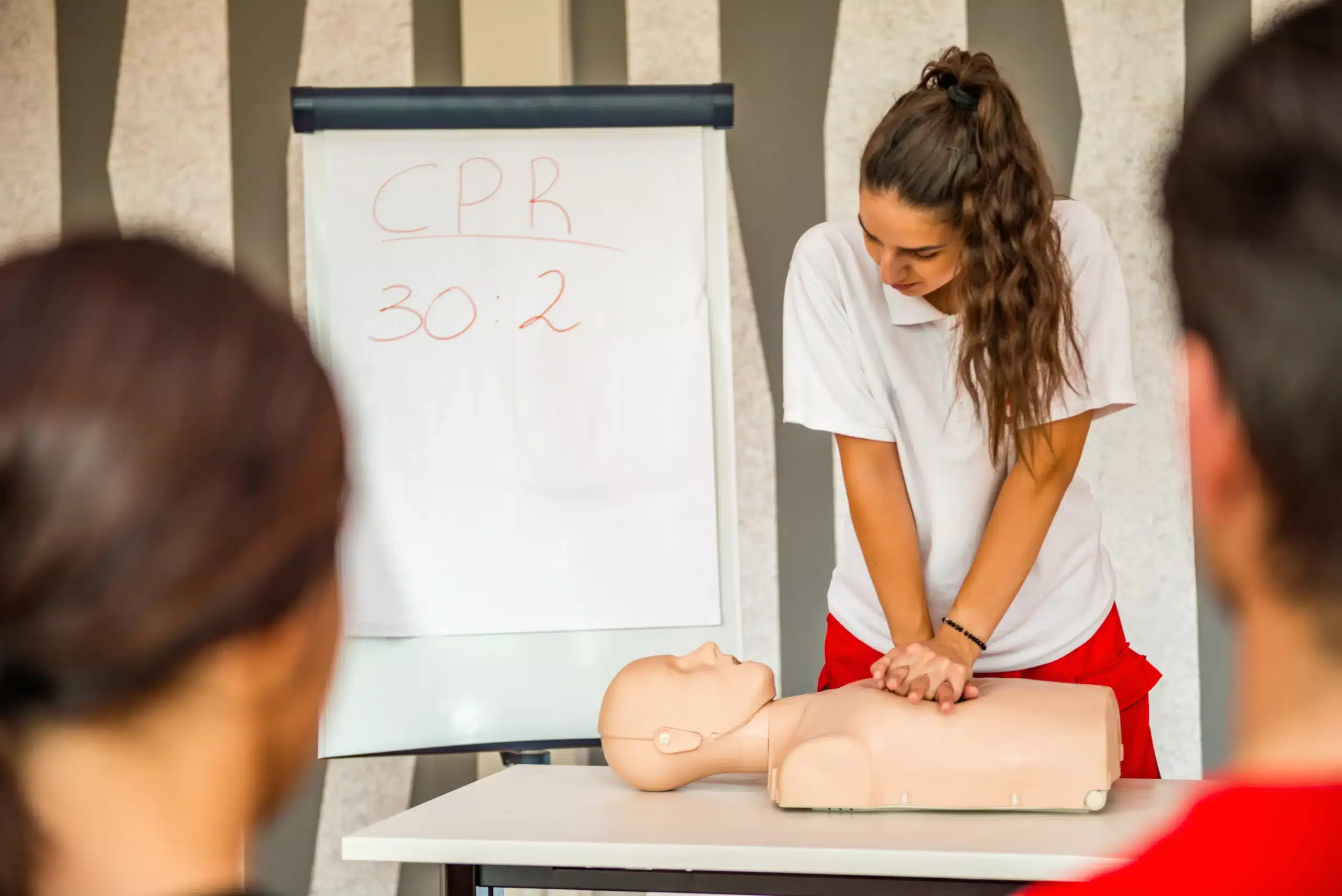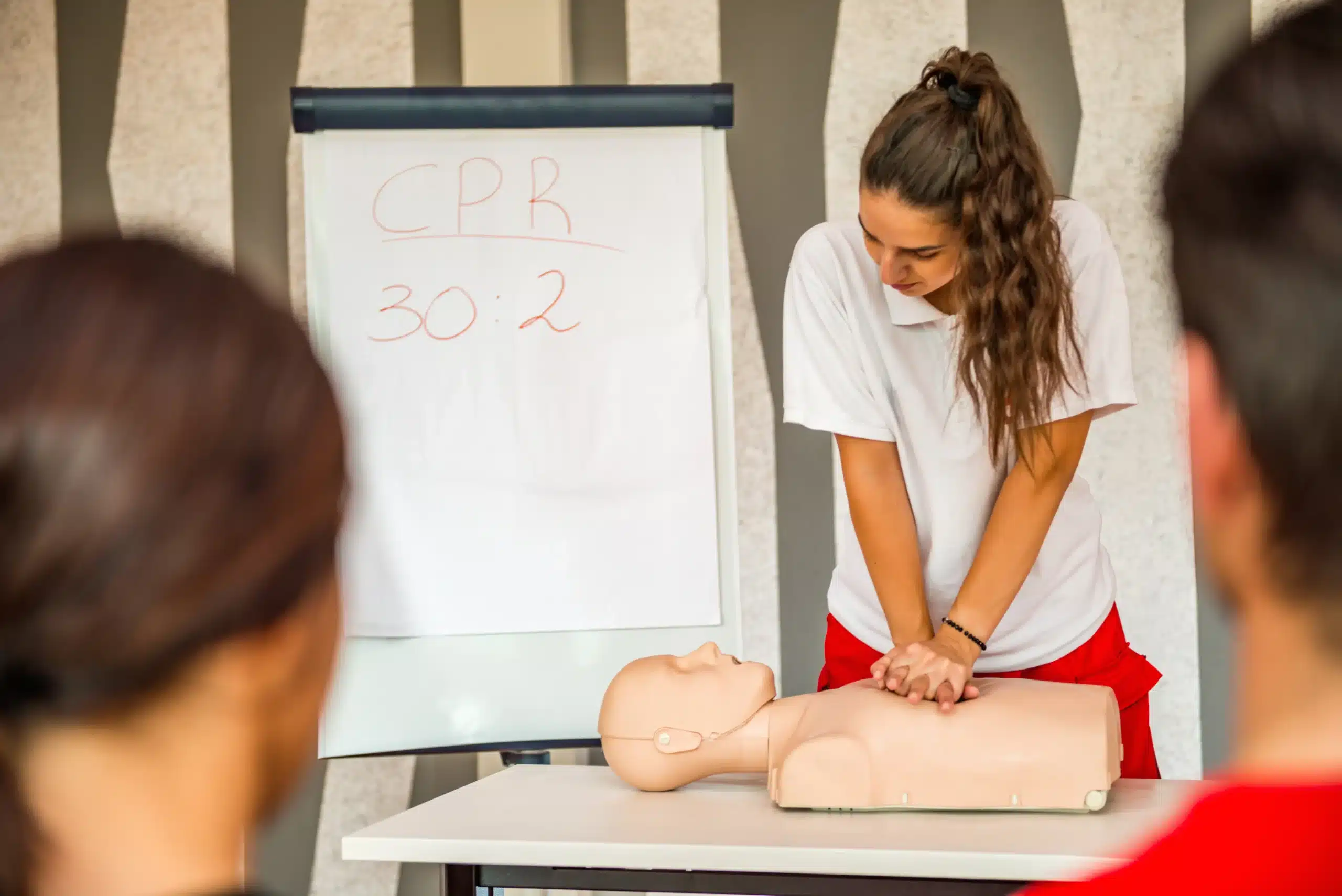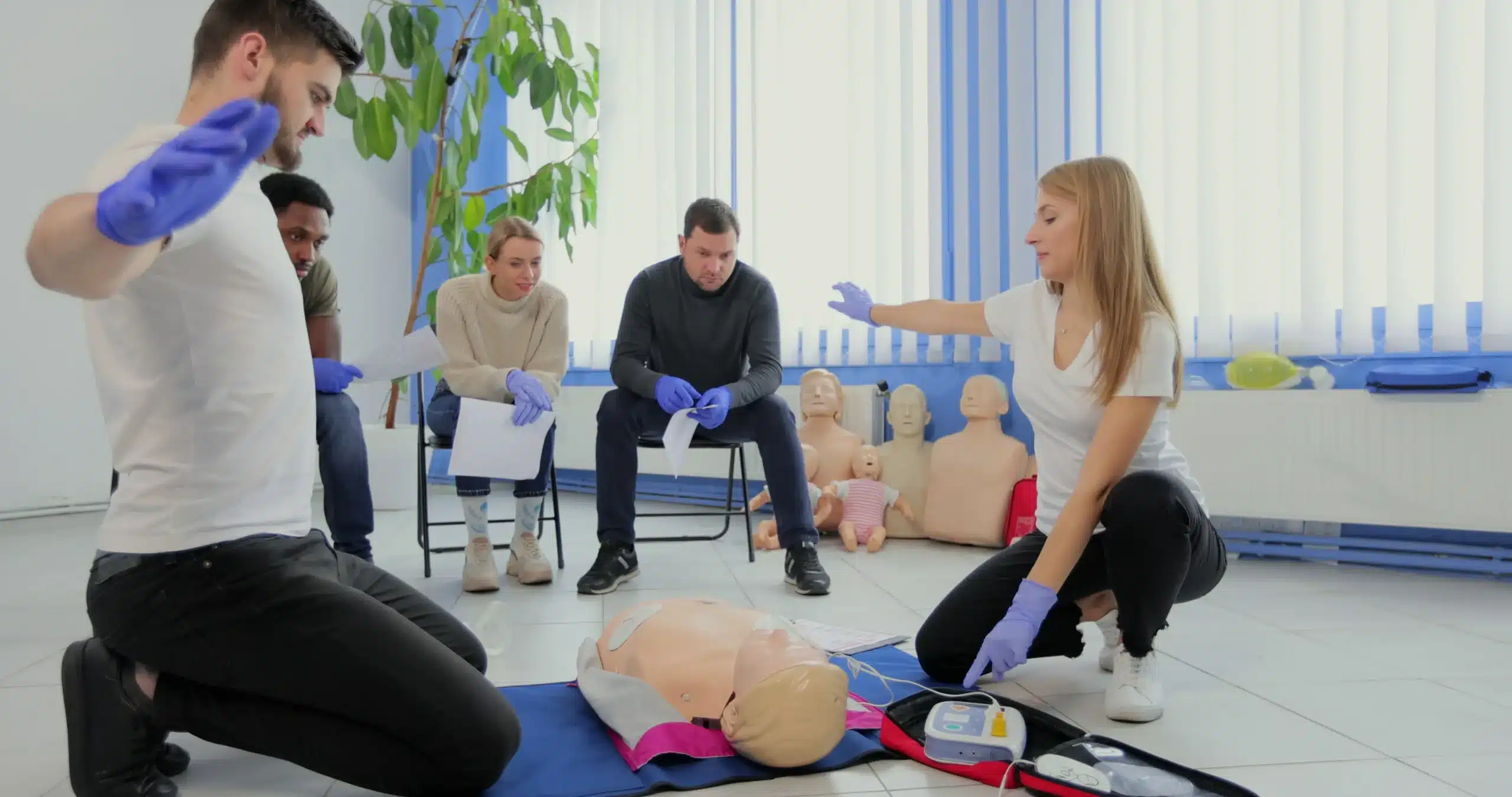Emergencies can happen anytime, anywhere. Would you know what to do? CPR certification equips you with the skills to respond effectively in critical situations, potentially saving lives. This comprehensive guide walks you through the process of getting CPR certified in Concord, CA, covering everything from choosing the right class format and understanding the costs to registering for a course and maintaining your certification. We’ll also explore options for those seeking cpr certification stockton ca, offering a broader perspective on available training resources. Join us as we explore the world of CPR certification and empower you to make a real difference.
Key Takeaways
- CPR certification is a powerful tool: Equipping yourself with CPR and AED skills enables you to confidently respond to emergencies, potentially saving lives. Explore various course formats to find the best fit for your needs.
- Choose your CPR training wisely: Seek out reputable providers offering accredited, AHA-certified courses taught by experienced instructors. Consider factors like flexible scheduling and positive reviews when making your decision.
- Stay sharp and prepared: Maintain your CPR skills through regular practice and continuing education. Keep your certification current and refresh your knowledge to ensure you’re always ready to act in a crisis.
What is CPR Certification and Why Does It Matter?
CPR certification proves you can perform cardiopulmonary resuscitation (CPR) and use an automated external defibrillator (AED) in emergencies. It’s important for healthcare professionals, first responders, and anyone who wants to be prepared. With CPR certification, you gain the skills to respond effectively to life-threatening situations and potentially save lives.
CPR training is crucial. Cardiac arrests are a serious issue, making trained bystanders essential. Knowing CPR significantly increases someone’s chance of surviving a cardiac arrest, making it a vital skill. Many employers encourage or require CPR certification for workplace safety and regulatory compliance. Having trained staff on-site during emergencies is a huge asset. Several organizations offer CPR training, including the American Red Cross and the American Heart Association. They offer various formats like in-person, online, and blended learning to fit your schedule and learning style.
CPR Class Types in Concord, CA
Choosing the right CPR class format depends on your learning style, schedule, and budget. Here’s a breakdown of the different CPR class types available in Concord, CA:
In-Person Classes
In-person CPR classes provide hands-on training with certified instructors. These courses cover essential life-saving techniques, including CPR for adults, children, and infants, how to use an automated external defibrillator (AED), and choking relief. In-person classes offer personalized instruction, real-time feedback, and the opportunity to practice skills in a controlled environment. This format is ideal for those who learn best through direct interaction and hands-on practice. Concord CPR Classes offers convenient in-person training serving Concord, Walnut Creek, and Pleasant Hill.
Online Classes
Online CPR classes offer flexibility and convenience, allowing you to learn at your own pace from anywhere with an internet connection. These courses typically involve video instruction, interactive quizzes, and downloadable resources. While online classes can be a great way to learn the basics of CPR, they don’t usually include a hands-on skills assessment component. This means that online-only CPR certification may not meet all workplace requirements. Always check with your employer or regulatory body to confirm the required certification.
Blended Learning
Blended learning combines the best of both worlds by offering online coursework and in-person skills sessions. This hybrid approach allows you to study the theoretical aspects of CPR online at your convenience, then attend a shorter in-person session to demonstrate your skills and receive your certification. Blended learning offers a good balance of flexibility and hands-on practice, making it a popular choice. Check with your local CPR training providers, such as the American Red Cross or American Heart Association, for blended learning options.
CPR Certification Costs in Concord
Knowing the cost of CPR certification helps you budget and choose the right course. While prices can change, understanding the general range and what influences cost is a great starting point.
Typical Prices
In Concord, basic CPR and first aid certification often falls between $40 and $60. More advanced training, such as BLS for healthcare providers, usually costs between $60 and $80. Keep in mind that these are estimates, and it’s always best to check with specific providers like Concord CPR Classes for their current pricing.
Factors Affecting Cost
Several things can influence the final cost of your CPR certification. The type of course, the training provider, and whether the course includes additional certifications (like first aid or AED training) all play a role. For example, a combined CPR/first aid/AED course will likely cost more than a CPR-only course. Also, different providers have different pricing structures.
Discounts and Special Offers
Many CPR training centers offer discounts, so keep an eye out for those. Group discounts are common, making it more affordable to train with friends or colleagues. Some providers also offer discounts for returning students or special promotions throughout the year. Be sure to ask about any available discounts when you contact a provider.
How to Register for CPR Classes in Concord
Getting your CPR certification in Concord is straightforward. Several organizations offer regular classes, making it easy to find one that fits your schedule and learning style. Here’s a general overview of how to register:
Registration Steps
-
Choose a CPR Class: Determine the type of CPR certification you need (BLS, ACLS, PALS, First Aid, etc.) and select a class that meets your requirements. Concord CPR Classes offers a range of CPR and First Aid courses to choose from. You can also explore options through the American Red Cross or the American Heart Association. Consider factors like class schedules, location, and the certifying organization.
-
Find a Class Date and Time: Once you’ve chosen a provider, browse their website or contact them directly to find available class dates and times. Many providers offer weekday and weekend options to accommodate various schedules. For those seeking group training, Concord CPR Classes offers group discounts.
-
Complete the Registration Form: Most providers allow online registration. You’ll typically need to provide your contact information, select your desired course, and choose a date and time. Some providers may require payment at the time of registration, while others may allow you to pay on the day of the class.
-
Confirmation: After registering, you should receive a confirmation email with details about your class, including the location, date, time, and any specific instructions.
Required Materials and Prerequisites
Generally, there are no prerequisites for taking a basic CPR class. However, some advanced certifications, like ACLS and PALS, may require proof of current BLS certification. Check with your chosen provider to confirm any prerequisites. As for materials, most providers will supply everything you need during the class, including mannequins and other training equipment. You may want to bring a notebook and pen to take notes. Some courses may also recommend a textbook or study guide, but this is usually optional. For specifics regarding required materials for the BLS course, visit the Concord CPR Classes website.
What Happens During CPR Class?
CPR classes blend theory and hands-on practice to equip you with the skills to respond effectively in medical emergencies. Here’s a glimpse of what you can expect:
Course Content
CPR courses typically begin by covering essential first aid and CPR knowledge. You’ll learn how to recognize the signs of a cardiac arrest, stroke, or choking. Instructors explain the importance of the chain of survival and guide you through the steps of performing CPR for adults, children, and infants. The curriculum also includes training on how and when to use an automated external defibrillator (AED). Many organizations, like the American Red Cross, offer various learning formats, including in-person, online, or blended learning. Concord CPR Classes follows the American Heart Association guidelines, providing comprehensive instruction aligned with the latest science-based recommendations. You can explore our BLS, ACLS, and PALS courses for more details.
Hands-on Practice
Hands-on practice is the cornerstone of effective CPR training. Instructors demonstrate proper techniques on mannequins, and you’ll have ample opportunity to practice chest compressions, rescue breaths, and AED usage yourself. This hands-on training is crucial for building muscle memory and confidence. At Concord CPR Classes, we emphasize practical training, ensuring you feel prepared to respond confidently in real-life scenarios. We offer discounted group rates to make this essential training accessible to everyone.
Real-Time Feedback
Many CPR courses now incorporate advanced mannequins that provide real-time feedback on your technique. These tools measure the depth and rate of your compressions, helping you refine your skills and ensure you’re delivering effective CPR. This real-time feedback enhances the learning process and boosts your confidence. Concord CPR Classes utilizes similar technology in our training to provide students with the most effective learning experience.
Certification Exam
Most CPR courses conclude with a certification exam to assess your understanding and practical skills. You’ll demonstrate your CPR technique and answer questions about the procedures. Upon successful completion, you’ll receive your CPR certification, typically valid for two years. Medical professionals seeking expedited certification can explore our RQI program for a streamlined approach.
Benefits of CPR Certification
Getting CPR certified isn’t just about checking a box; it’s about equipping yourself with skills that can make a real difference. Whether you’re a healthcare professional, a concerned parent, or simply someone who wants to be prepared, CPR certification offers several valuable benefits.
Life-Saving Skills
Emergencies happen. When they do, knowing CPR can be the difference between life and death. Cardiac arrest can strike anyone, anywhere, often without warning. With hundreds of thousands of cardiac arrests occurring each year, learning CPR allows you to provide immediate assistance while waiting for professional medical help. This quick action can significantly improve the chances of survival.
Career Advancement
In many healthcare and related fields, CPR certification isn’t just recommended—it’s often required. Holding an American Heart Association (AHA) certification can give you a competitive edge. Many employers prefer AHA certifications like BLS, ACLS, and PALS because they represent a high standard of training. Whether you’re starting your career or looking to advance, CPR certification can open doors and demonstrate your commitment to patient safety.
Confidence in Emergencies
Imagine finding yourself in an emergency. Would you feel confident and prepared to act? CPR training teaches you the necessary skills and instills the confidence to use them effectively. Modern CPR courses often use advanced training equipment, like mannequins with real-time feedback, to help you refine your technique. This hands-on experience, combined with expert instruction, empowers you to respond calmly and decisively under pressure.
Community Impact
Becoming CPR certified means you’re not just prepared to help your loved ones—you’re also a valuable asset to your community. You become part of a network of trained individuals ready to respond to emergencies. This strengthens community resilience and creates a culture of preparedness. Effective CPR training empowers individuals to provide accurate feedback, further enhancing the quality of care within the community.
CPR Training Providers in Stockton, CA
While Concord CPR Classes is your go-to for CPR training in Concord, Walnut Creek, and Pleasant Hill, we understand you might be looking for options in nearby areas. If you’re in Stockton, here are a few providers worth checking out:
American Red Cross
The American Red Cross offers CPR/AED classes and certification in Stockton. They have several learning options, including in-person classes, online courses, and blended learning (a mix of online and in-person instruction). Their in-person classes include hands-on training and lead to a two-year certification that meets OSHA requirements.
American Heart Association
You can find American Heart Association-certified courses in Stockton through a few different providers. Stockton CPR Certification offers daily classes in CPR, BLS, ACLS, PALS, and First Aid. You can also find American Heart Association BLS, ACLS, and PALS courses at Safety Training Seminars.
Other Local Providers
If you prefer on-site training, Professional CPR brings the classroom to your home, office, or business throughout Northern California. Valley Mobile CPR Training & Certifications is another option located in Stockton, offering a range of CPR training courses.
Maintaining Your CPR Certification
CPR certification is like any other skill—regular practice is key. While you’ll receive a digital certificate valid for two years after completing your course, staying sharp is crucial for responding effectively in a real emergency. Knowing what to expect and how to maintain your skills can make the renewal process smooth and ensure you’re always ready to help.
Renewal Requirements
CPR certifications are typically valid for two years. However, it’s important to remember that your skills can begin to fade even within months of your initial training. The Red Cross points out this decline, emphasizing the importance of regular practice and staying current with the latest guidelines. After successfully completing your CPR course, you’ll receive a two-year digital certificate for Adult First Aid/CPR/AED—a vital credential for anyone in healthcare or emergency response. More details about this certification are available on the Red Cross website.
Continuing Education
Continuing education is essential for keeping your CPR skills fresh. Studies show that incorporating feedback during training significantly improves skill retention and proficiency. Research published by the National Library of Medicine found that detailed feedback, especially from training mannequins, increases motivation and improves CPR performance. Another study from Cambridge University Press highlighted the benefits of real-time visual feedback during training, which leads to better CPR quality. Look for refresher courses and training opportunities that use real-time objective feedback and interactive elements. These methods, supported by research in the PubMed Central database, can significantly improve your overall CPR performance and ensure you’re prepared for any emergency.
Choosing the Right CPR Program
Finding the right CPR program is crucial for gaining confidence and competence in life-saving skills. Here’s what to consider:
Accreditation
Look for programs accredited by nationally recognized organizations like the American Heart Association (AHA). AHA certification is widely accepted, ensuring your training meets high standards, which is especially important if you need CPR certification for your job. Concord CPR Classes offers AHA-accredited courses.
Instructor Qualifications
Experienced, certified instructors make all the difference. Instructors certified by organizations like the American Red Cross bring a wealth of knowledge and practical experience to the classroom. Ask about the instructors’ backgrounds and certifications to ensure you’re learning from qualified professionals. Concord CPR Classes has a team of highly skilled and certified instructors.
Class Schedules
A flexible schedule is key. Look for providers that offer various class times and days, including weekend and evening options. Concord CPR Classes offers a range of schedules to accommodate busy lives. Check their website or contact them to find a class that works for you. They serve Concord, Walnut Creek, and Pleasant Hill.
Reviews and Testimonials
Reading reviews and testimonials from past students offers valuable insights. Look for comments about the instructors, course content, and overall learning experience. Positive feedback can be a strong indicator of a quality program. Don’t hesitate to ask Concord CPR Classes for references or check online reviews. Word-of-mouth can be incredibly helpful.
Related Articles
- Why CPR is Critical in Healthcare
- CPR Certification in Concord: Your Complete Guide – Concord CPR Classes
- CPR Classes in Concord, CA: Your Complete Guide – Concord CPR Classes
- CPR Courses in Concord: Find the Right Class for You – Concord CPR Classes
- First-Aid Training in Concord: Your Complete Guide – Concord CPR Classes
Frequently Asked Questions
How long does it take to get CPR certified? CPR certification courses vary in length, but most basic classes can be completed in a single day, typically ranging from 4 to 6 hours. More advanced certifications, such as BLS, ACLS, or PALS, may require longer training times.
What’s the difference between CPR and First Aid certification? CPR focuses specifically on life-saving techniques for cardiac arrest and choking. First Aid covers a broader range of injuries and illnesses, including cuts, burns, fractures, and allergic reactions. Some courses combine CPR and First Aid training.
How often do I need to renew my CPR certification? Most CPR certifications are valid for two years. It’s recommended to refresh your skills regularly, even before your certification expires, to maintain proficiency.
Is online CPR certification accepted everywhere? While online CPR courses offer convenience, they may not be accepted by all employers or organizations. Some require in-person skills assessment and certification. Always check with your employer or regulatory body to confirm their specific requirements.
What if I don’t have any medical background? Can I still learn CPR? Absolutely! CPR courses are designed for people of all backgrounds, regardless of prior medical experience. The classes provide comprehensive instruction and hands-on practice to equip anyone with the skills to respond effectively in an emergency.



